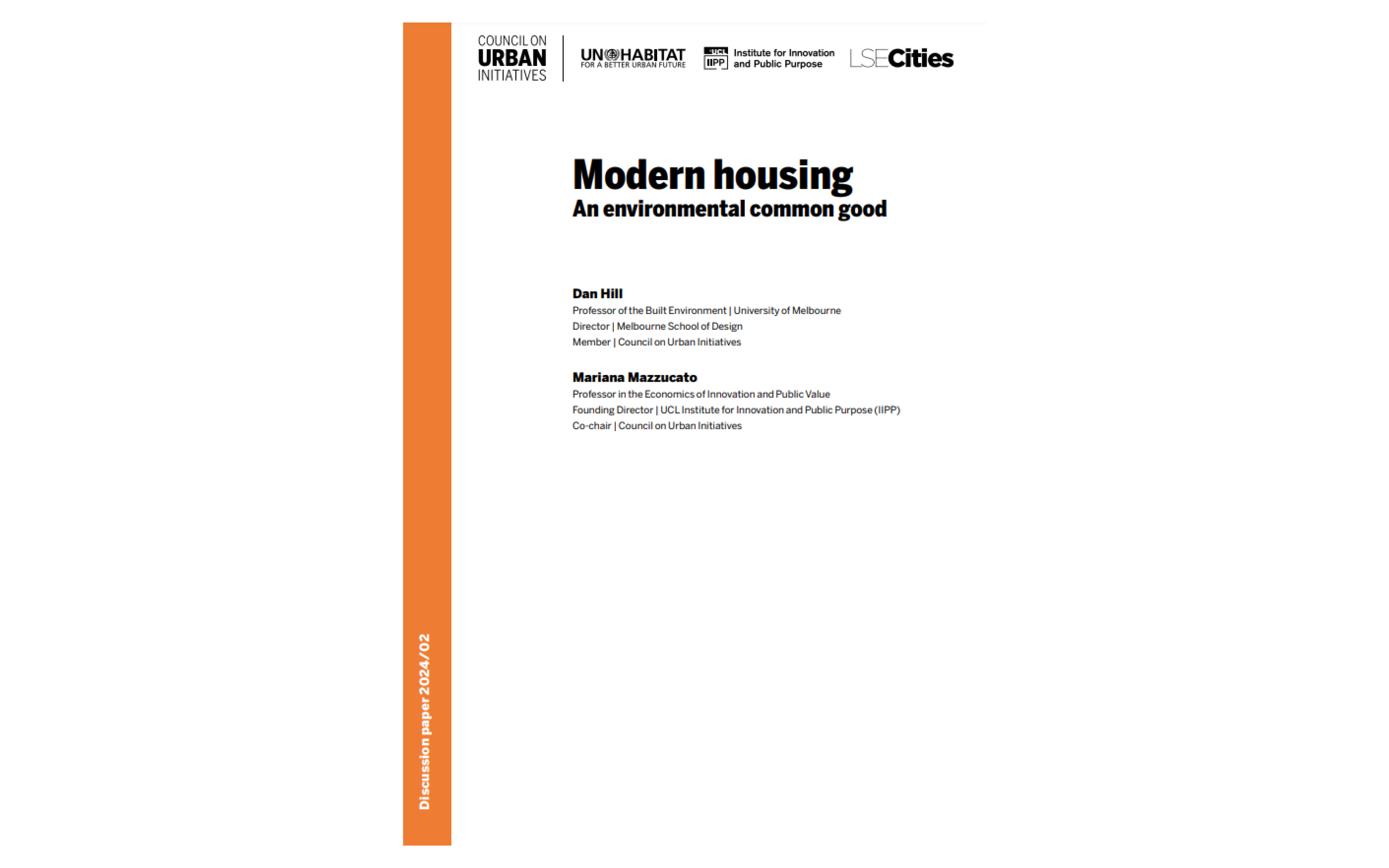Modern Housing: An environmental common good
Authored by Prof. Dan Hill and Prof. Mariana Mazzucato

14 March 2024
UCL Institute for Innovation and Public Purpose Working Paper Series: IIPP WP 2024-03
Modern Housing: An environmental common good
This paper argues that our current housing systems prioritize the needs of investment funds & construction companies over the people and planet and sets forth a bold rethinking of housing as a common good.
Housing is a fundamental human right, our core social foundation. As such, housing intrinsically integrates the challenges of both social and environmental justice. Yet its current trajectory, defined by financialisation, extraction and inequality, mitigates against achieving either goal. We are at a critical juncture as a result, and we must fundamentally rethink our approach to housing. Could we reverse our extractive approaches in order to produce housing that is dignified, durable, beautiful and adaptable, and made available for all, as a common good? And could the way that we make common good housing happen also produce clean, safe, healthy, convivial and nourishing shared environments?
A coherent strategy would see the interdependent dynamics of making housing
– building and retrofitting – realigned, redeployed and interconnected across an integrated global approach, and redefined by a revived common good frame- work. It would recognise that the way these dynamics play out in the Global North directly affects the Global South and vice versa, and that this symbiotic, entangled relationship must work within planetary boundaries. It would recognise the right to housing, but also the rights of the environment. It would recognise the right of people to remain in place, as well as the increasing need to fulfil migrants’ rights to housing.
This requires a transformation in practices around housing in terms of design, construction, care, economy, and more diverse forms of shared living, tenure, ownership and governance. At the larger scale, the industry behind housing must shift towards retrofit, reuse and redistribute, cultivating new and old skills with circular materials from regenerative sources designed for assembly and disassembly via modular fabrication. At the smaller scale, genuine participation in making and re-making housing can be unlocked through self-build, adaptive, open building systems. A redistribution of existing living spaces must meaningfully counterpoint the extractive practices of building. In all this, engaged, publicly led planning and policy can be complemented by a revived public and social housing, which can create and direct sustainable and affordable housing markets outside extractive financialisation.
Housing policy and practice could powerfully articulate and demonstrate a new policy framework for ‘reviving the common good.’ This would be oriented towards the rights of the environment as well as people, and based around principles of purpose and directionality, co-creation and participation, collective learning and knowledge-sharing, access and reward-sharing for all risk-takers, as well as transparency and accountability in decision-making.
Authors:
- Dan Hill | Professor of the Built Environment | University of Melbourne | Director | Melbourne School of Design | Member | Council on Urban Initiatives
- Mariana Mazzucato | Founding Director and Professor in the Economics of Innovation and Public Value | UCL Institute for Innovation and Public Purpose (IIPP) | Co-chair of the Council on Urban Initiatives
Reference:
Hill,D. and Mazzucato, M. (2024). Modern Housing: An environmental common good. Council on Urban Initiatives. (CUI DP 2024-02). UCL Institute for Innovation and Public Purpose Working Paper Series: IIPP WP 2024-03. Available at: https://www.ucl.ac.uk/bartlett/public-purpose/publications/2024/mar/modern-housing-environmental-common-good
For further information visit: https://councilonurbaninitiatives.com
 Close
Close

